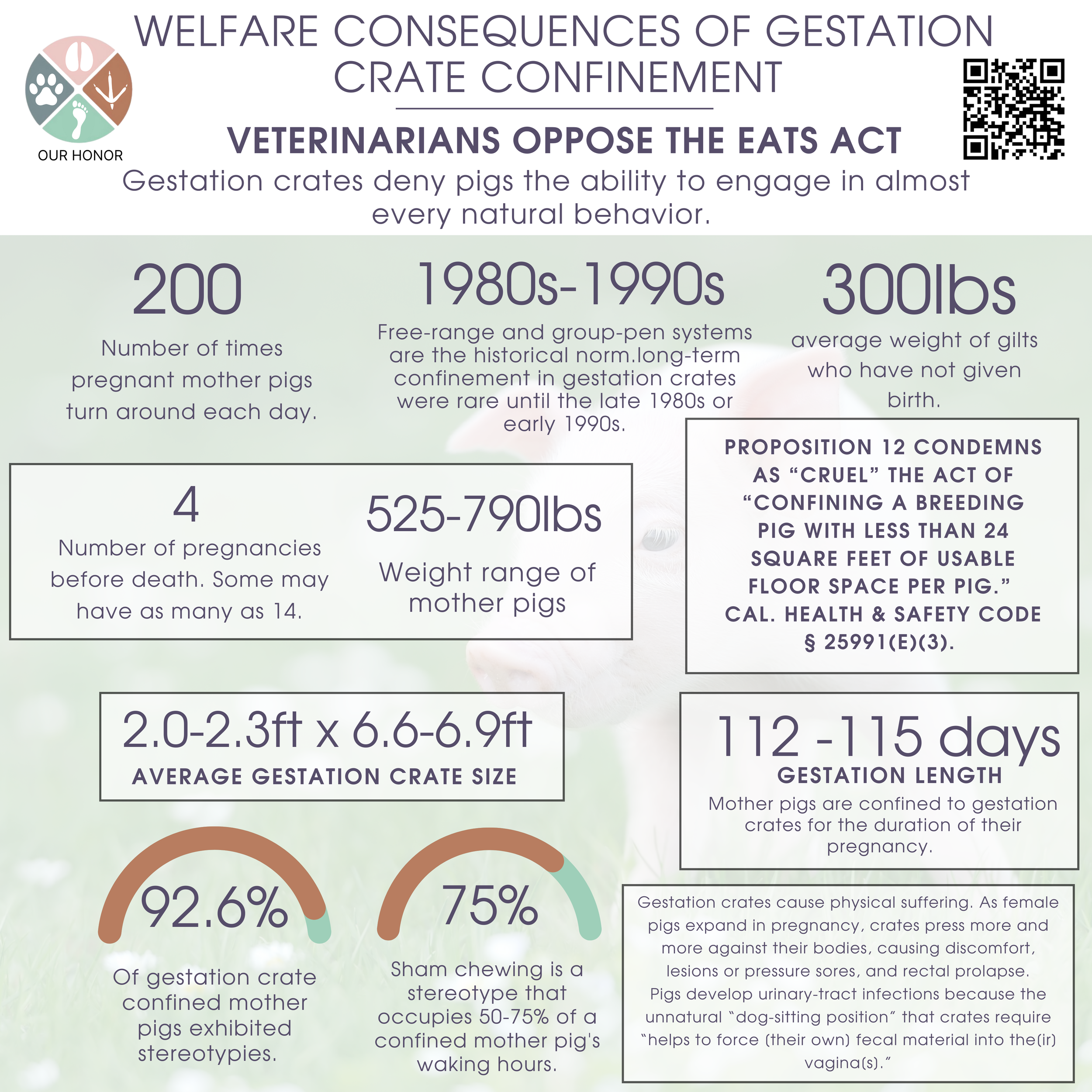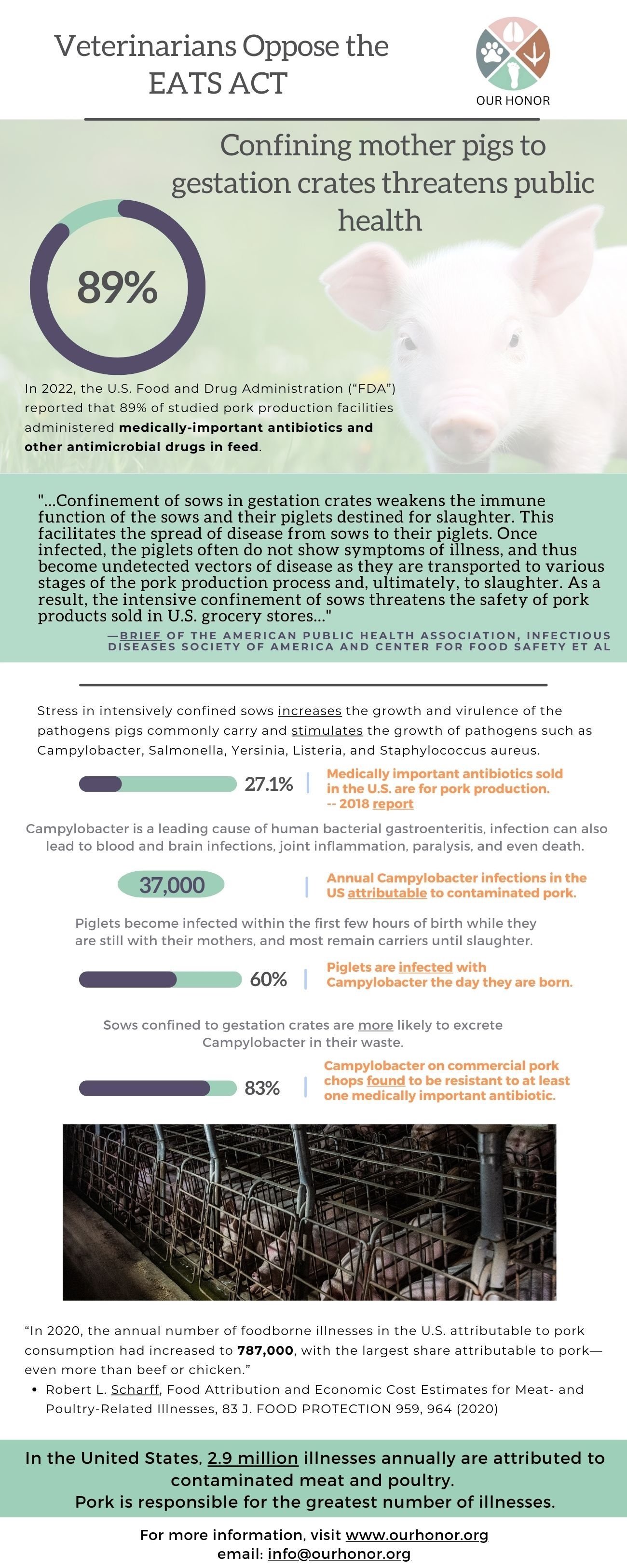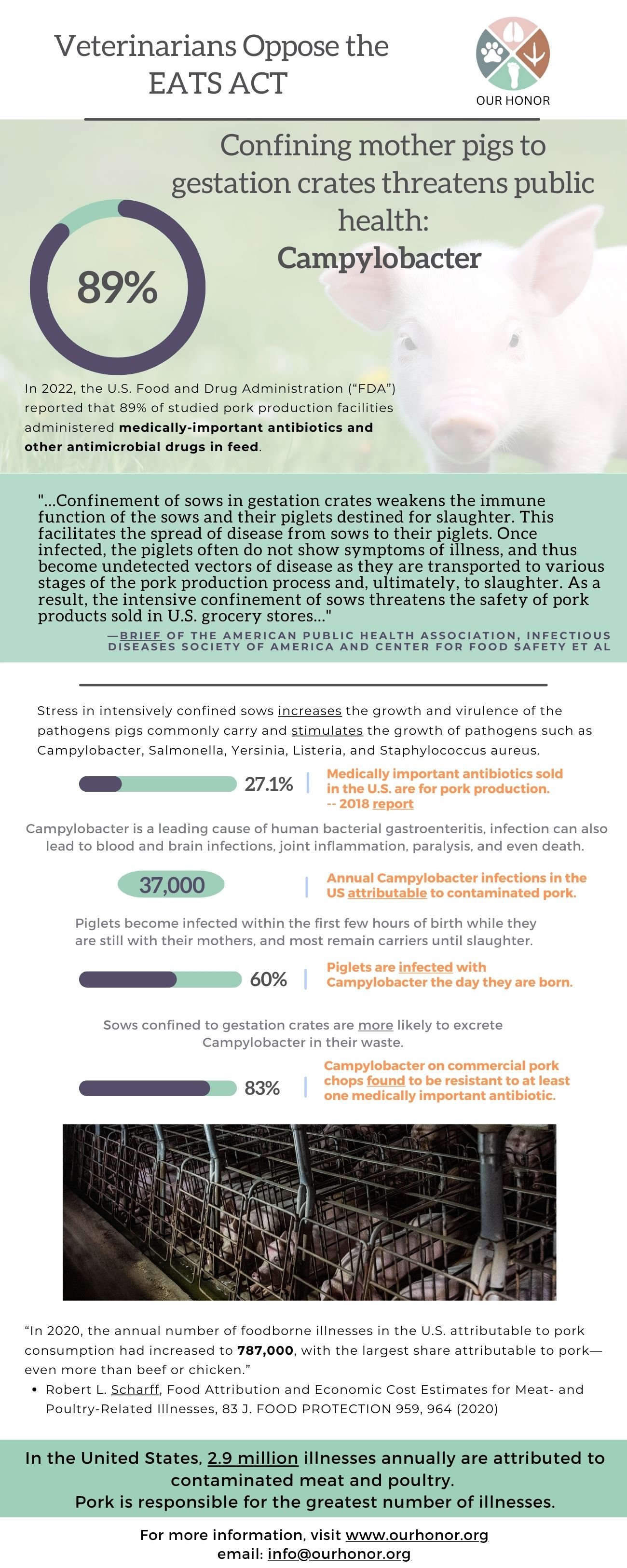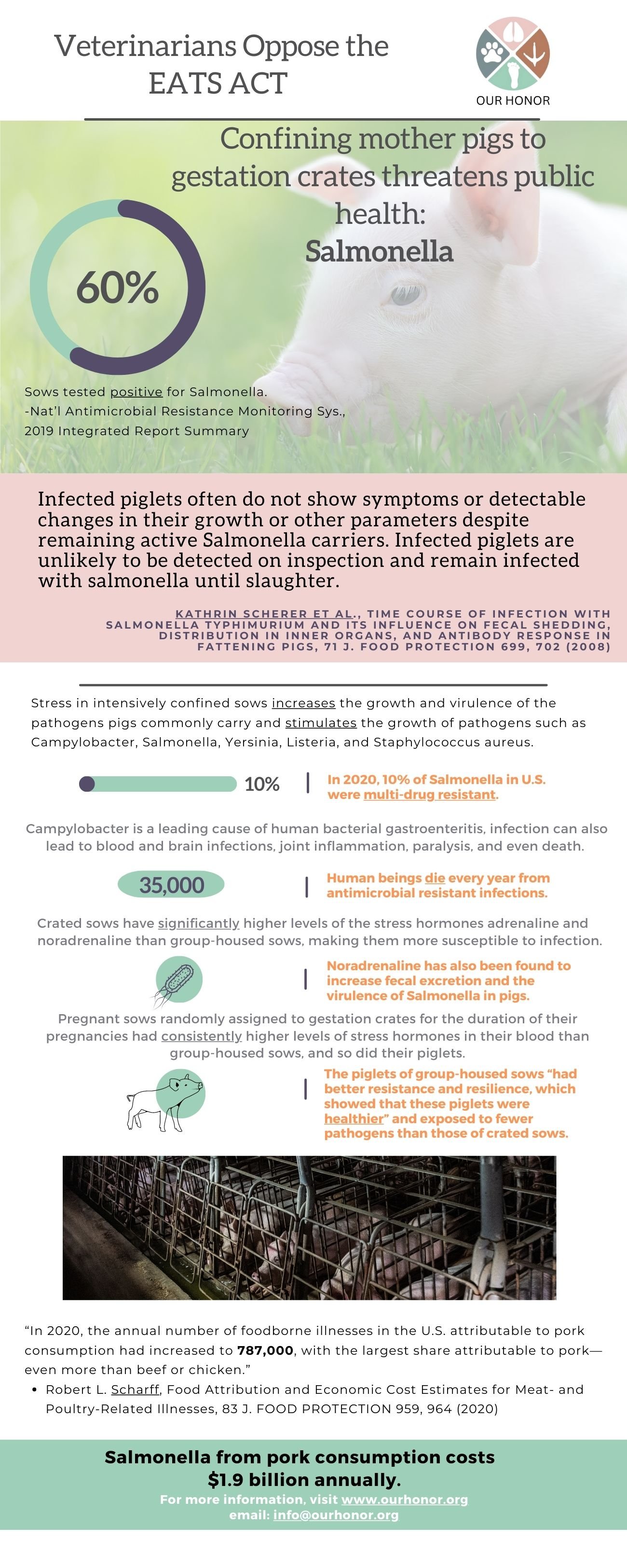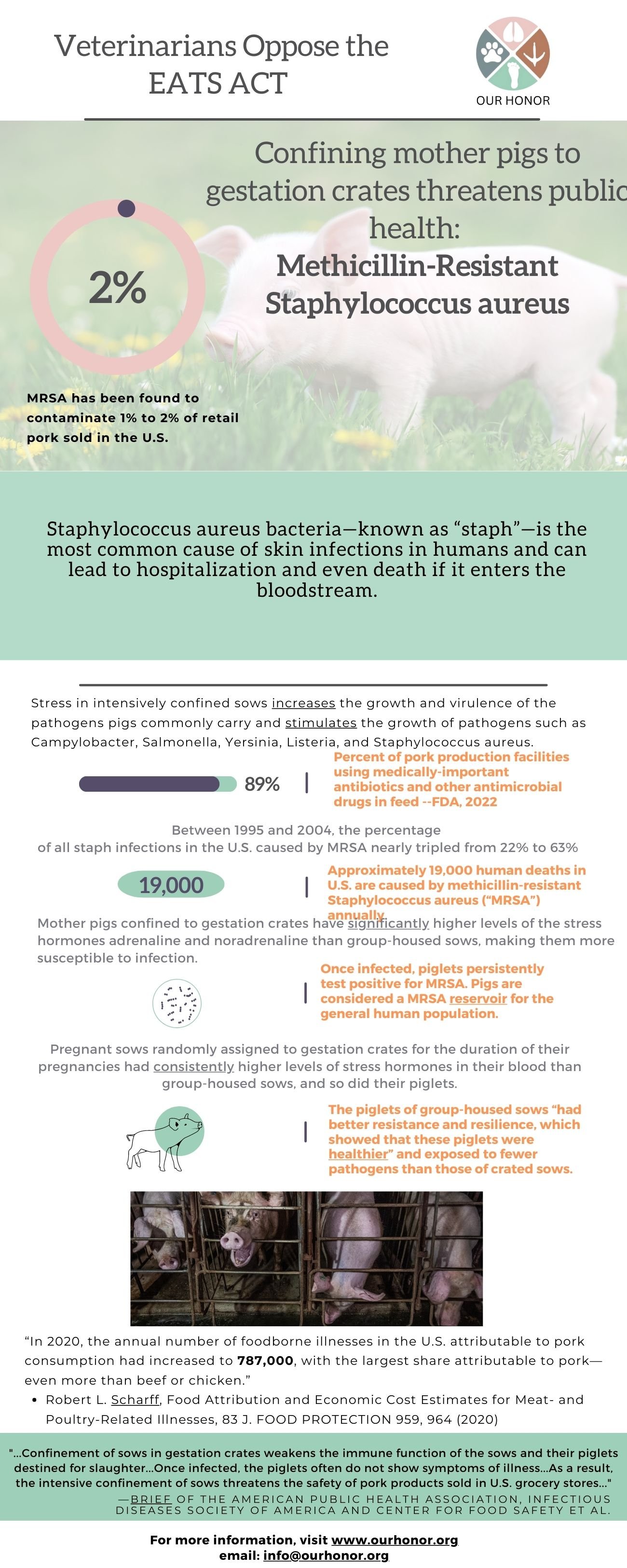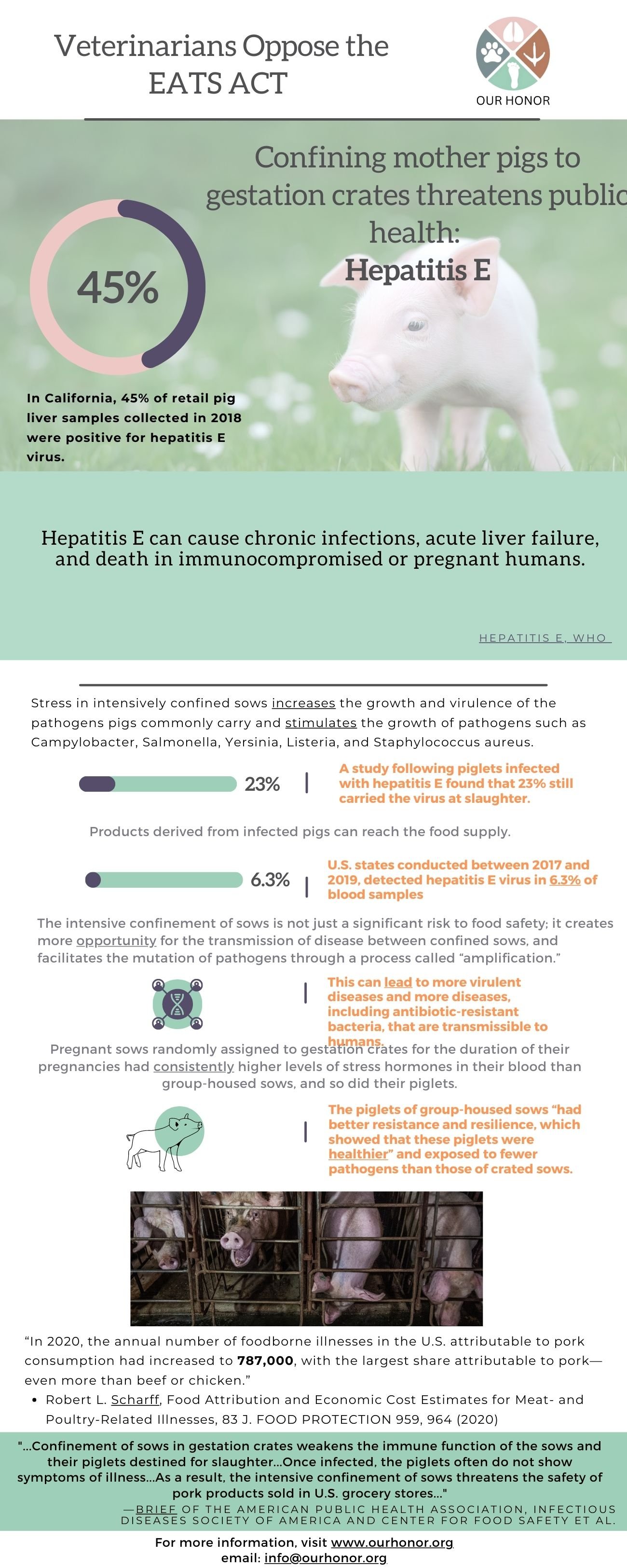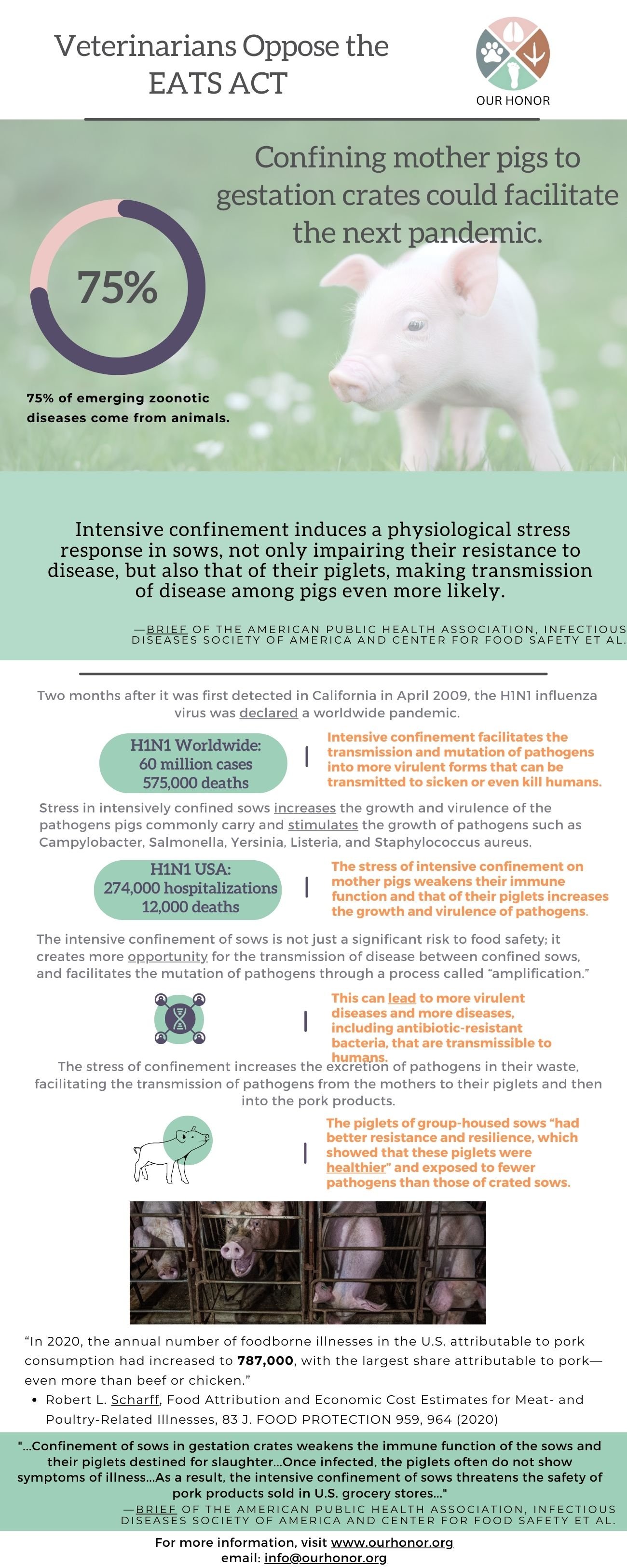Veterinarians Oppose the Ending Agricultural Trade Suppression (EATS) Act
Please share Dr. Crystal Heath’s Op-Ed in Modern Farmer highlighting the welfare and food safety threats that would only worsen if the EATS Act were to pass.
The EATS Act was reintroduced in response to the U.S. Supreme Court’s decision to uphold California’s Proposition 12, passed by 63% of California voters. Proposition 12 sets minimum standards for housing animals whose flesh and other products are sold in the state. Californians passed the law to protect their state from the public health risks associated with products from intensively confined animals, as well as to prevent the sale of animal products produced in an immoral and unethical way.
The EATS Act (H.R. 4417) would overturn Proposition 12 and prevent state and local governments from passing laws that affect agricultural practices and prevent states from deciding the standards or conditions of manufacture of the products offered for sale in their locality.
The broad language of the bill would not only overturn Prop 12 but legislative victories preventing puppy mill cruelty, ensuring food safety, and other protections for farmed animals. Unfortunately, due to animal agriculture industry lobbying and influence, it is extremely difficult to pass animal protection legislation at the Federal level. It is even difficult at the State level, and bills addressing animal agriculture practices usually fail in committee due to Big Ag lobbying. However, ballot initiatives are the one mechanism to bring these questions directly to the people themselves.
The industry diverts taxpayer funds to their companies through grants and bailouts to ensure their profits, but the voters have very little say. The EATS Act would threaten the democratic process even further by removing their ability to pass valuable legislation that protects animal welfare and public health.
How Proposition 12 Protects Public Health
Please read, share, and distribute our handouts about the public health threats associated with confining mother pigs to gestation crates and the effects of intensive confinement on disease risk.


